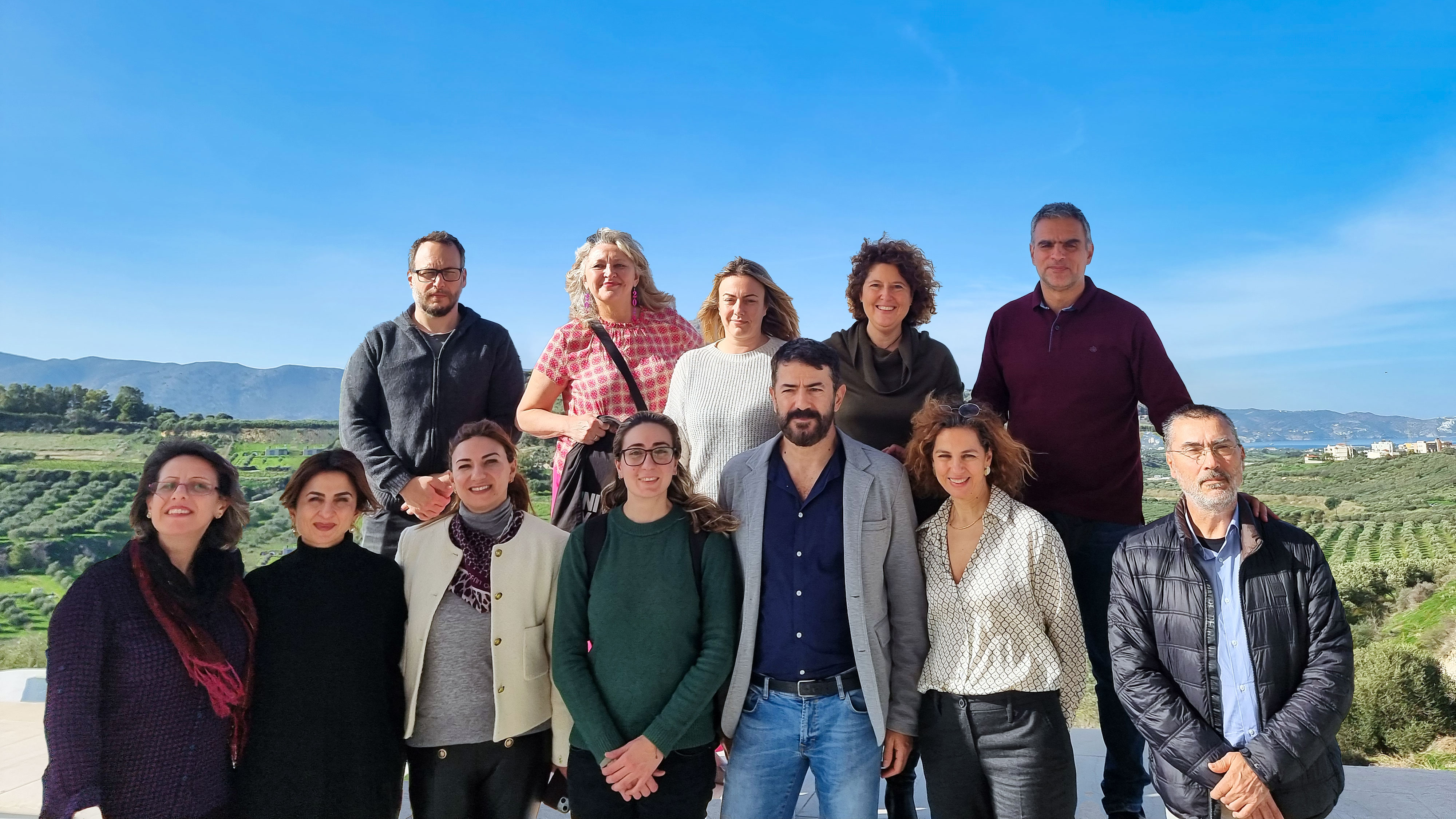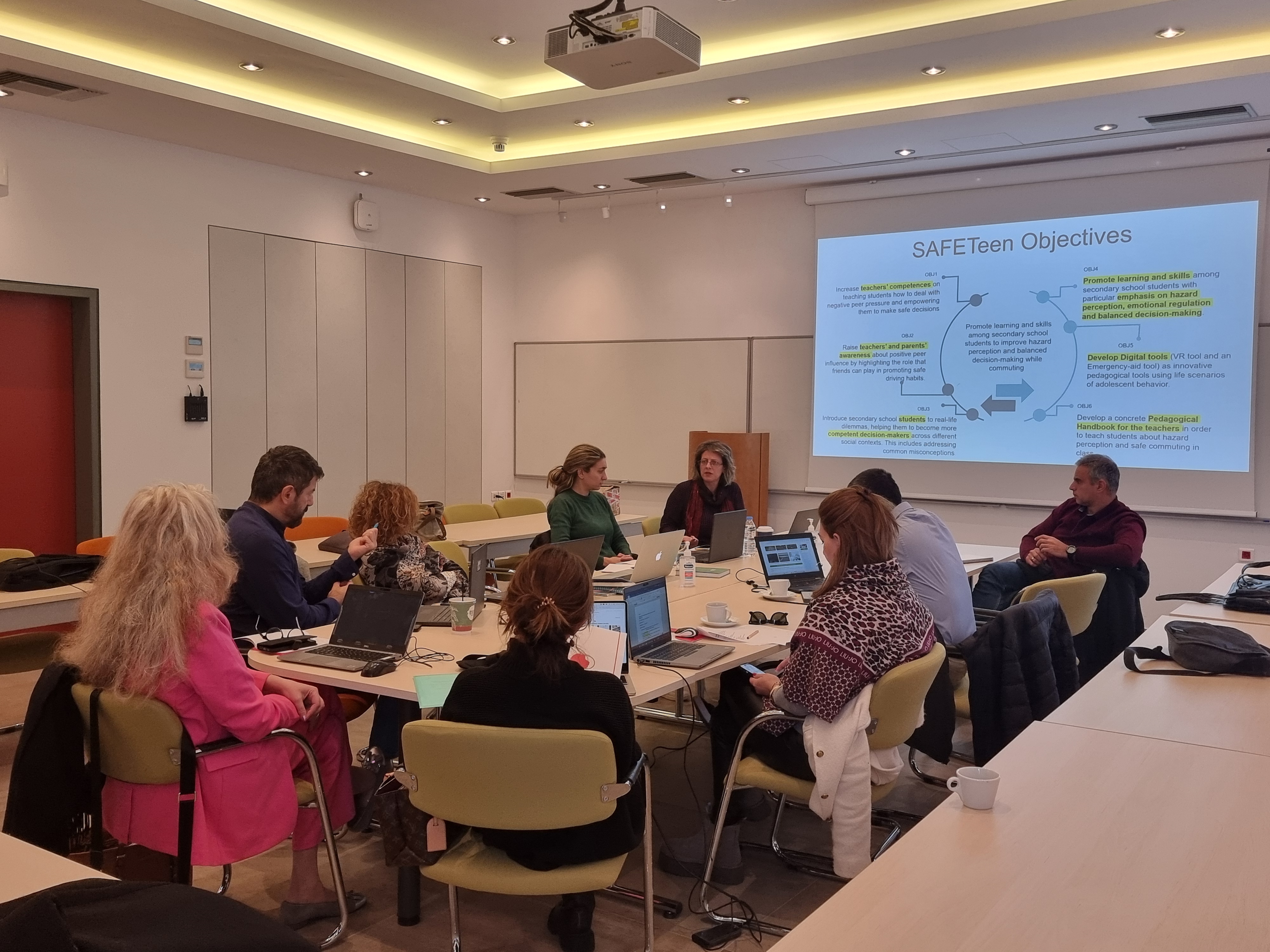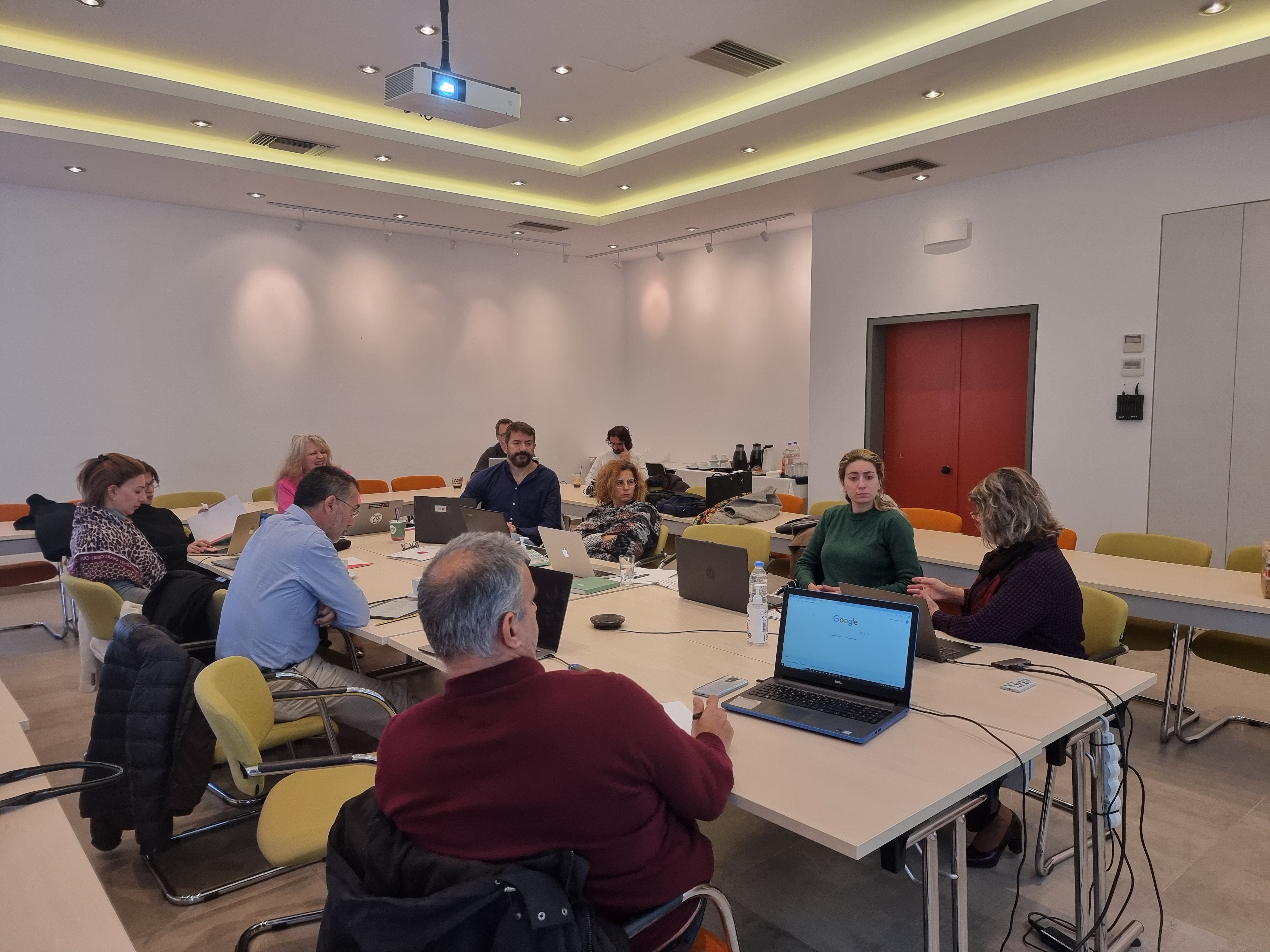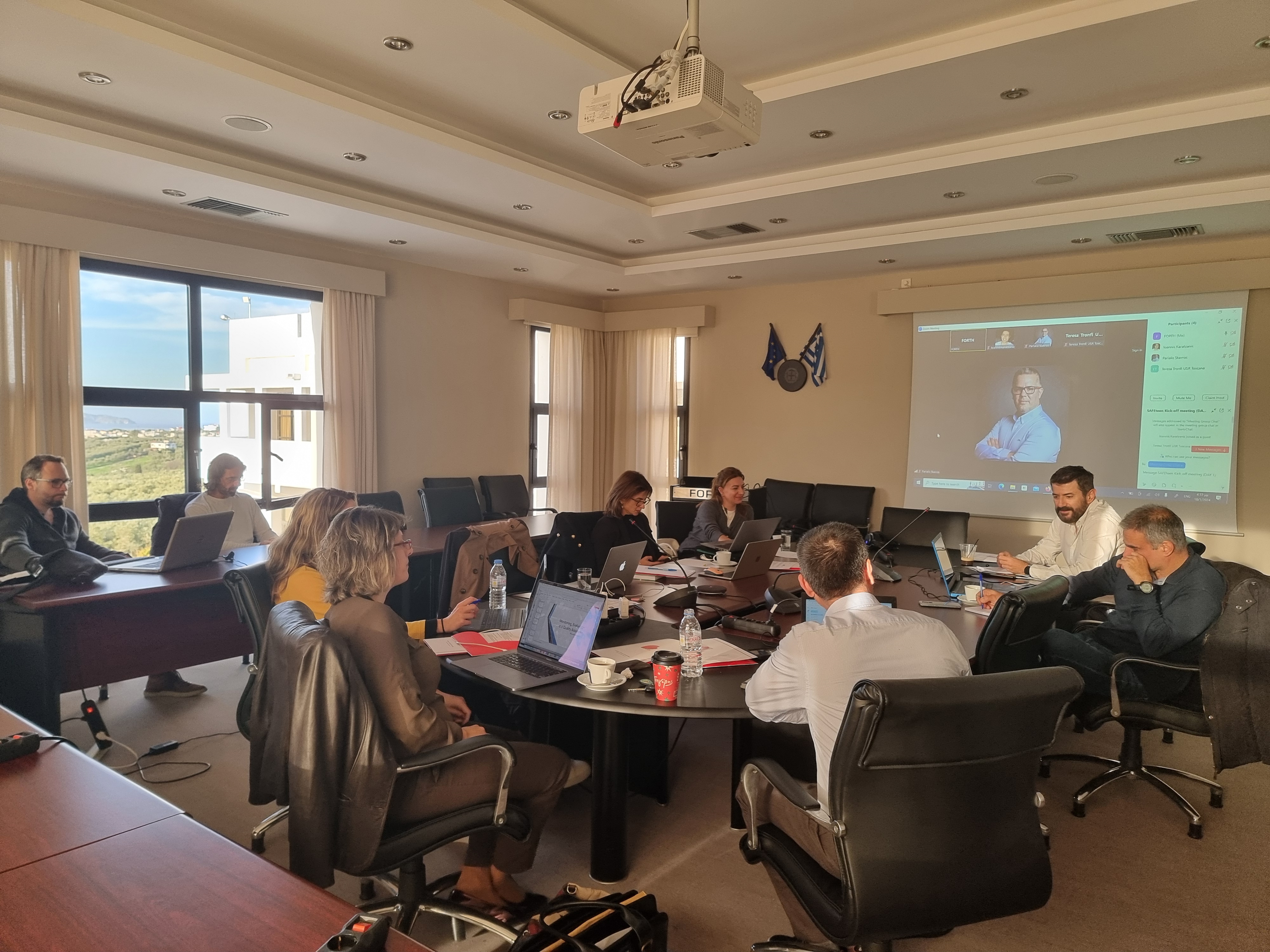


Improving hazard perception and decision-making processes among teenagers while commuting, is the main goal of the new Erasmus+ funded project entitled “Building skills for enhancing hazard perception and safe decisions among teenagers (Road Safety)” (SAFETeen). Hazard perception refers to the conscious actions and behaviors of the individual in the face of risk and is a particularly important skill in the prevention of road traffic accidents. It has been observed that teenagers, despite knowing the dangers of unsafe commuting, often choose to commute upon ignoring the safety rules. This often occurs upon intense peer pressure and under conflicting circumstances and moral dilemmas.
The SAFETeen project will develop innovative materials and tools, including a user-friendly Pedagogical Manual for teachers, digital tools (a Virtual Reality -VR- tool and an Emergency-Aid tool) for students and young people as well as innovative pedagogical methods and techniques for teaching self-control and safe decision pathways in various social contexts. The innovative digital methodology that will be used aims at promoting personalized and self-regulated learning among students and facilitating the work of teachers. The material will be designed by a partnership of three scientific fields (pedagogical sciences, social and Computer sciences).
Leader in this project is the Hellenic Mediterranean University established in Crete (Greece). Partners in the project are seven organization from five different countries: The Foundation for Research and Technology- Hellas, in Crete (Greece), the University of Valencia (Spain), the Regional Educational Office of Toscana (Italy), the Regional Directorate of primary and secondary Education of Crete (Greece), the University of Turku (Finland), the Ministry of education, Culture, Sport and Youth of Cyprus (Cyprus) and the Frederick University (Cyprus).

The project kick-off meeting took place at the premises of the Foundation for Research and Technology- FORTH Hellas, in Crete (Greece) in Heraklion, on January 18 & 19, 2024. During the meeting, the partners discussed the project workplan and the expected outcomes and identified important milestones. The project timeframe was reviewed and the activities of the first year were scheduled. Financial and management issues were clarified towards a smooth project implementation.
Erasmus+ aims at increasing the quality and relevance of qualifications and skills. Mostly it is funding people to study, train, work or volunteer abroad. It also provides funding for partnerships between educational institutions, youth organisations, enterprises, local and regional authorities and NGOs, as well as support for reforms in Member States to modernise education and training and to promote innovation, entrepreneurship and employability.
The project coordinator is Dr. Maria Papadakaki, Associate Professor, Department of Social Work, Hellenic Mediterranean University, Director of the Health and Road Safety Laboratory (LaHeRS), e-mail: mpapadakaki@hmu.gr, tel: +30-2810379518, 379241.
More information soon at https://www.safeteen.eu/.


